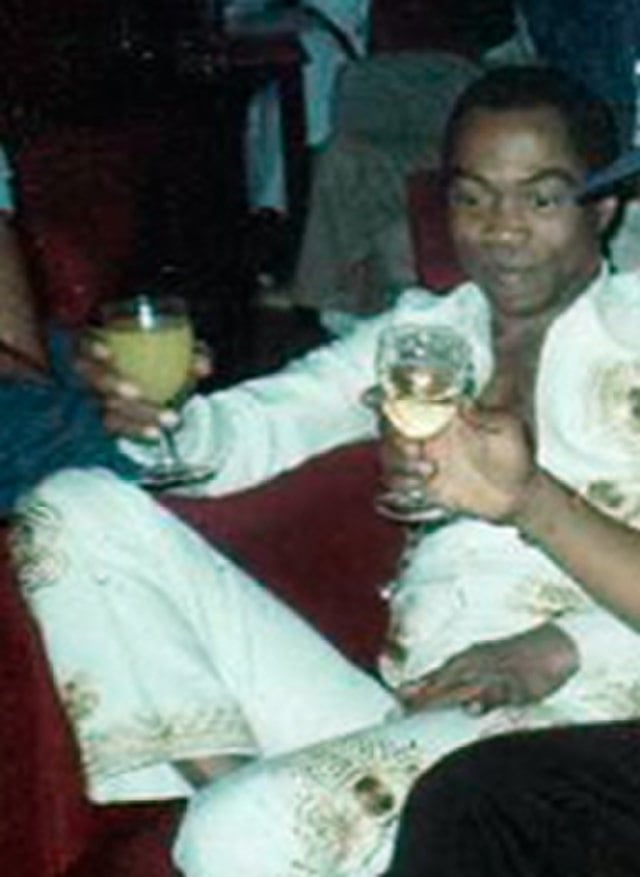By Veracia Ankrah
Posted on January 14, 2022
Afrobeats are a musical genre that originated in West Africa. The term itself is inherently flawed as there are tons of varying sounds and sonic nuances depending on where the music is made, diversified by not only country but through region and dialects in language.
“Afrobeats” broadly classifies the complex rhythms and heavy percussion-based music captivated in Ghana’s highlife music in the 1920s and catapulted by world-renowned Nigerian Afrobeat (politically charged, non-commercial music) artist and cultural shapeshifter Fela Kuti. Now, unified within one category coined in 2010, the term ties in several elements in sub genres including Afroswing, Afropop and even Afrohouse. African sounds are found worldwide as the diaspora spreads through anywhere Black people are found. This global spread explains why far before mainstream media in North America and Europe recognized its significance, Afrobeats gained familiarity across the globe.
The songs on Drake’s 2016 studio album Views — dedicated to the city of Toronto and the diverse cultures found in the city—drew inspiration and elements from reggae, dancehall, and Afrobeats. Wizkid, an Afrobeats artist from Nigeria was featured on “One Dance,” a song credited for bringing Wizkid’s music to American audiences. Africans and fans of the already popular genre in many parts of the world believed the narrative about the Americanized version was incredibly inaccurate. Afterwards, Wizkid was featured again on Beyonce’s 2020 album and musical, The Gift (a tribute to African culture as a modern take on the newest Lion King movie soundtrack) on the Grammy-award winning record “Brown Skin Girl” where others unfamiliar with the amassed sound took a liking. Later that year, in October of 2020, Wizkid released his fourth studio album, Made In Lagos–currently the longest-charting Nigerian album this century – solidifying his artistry as a songwriter and pioneer to what is considered Afrobeats music today, at least to the untrained ear. If you haven’t heard the breakout single “Essence” featuring the up-and-coming fellow Nigerian singer and songwriter Tems, you might have not turned on your radio or attended any pandemic “party” in the last few months.

The feel-good single describing the desire to be engulfed in the invariable nature of a lover’s presence, “Essence” became an official release in April 2021 and has since broken multiple records in the United Kingdom and made history in the U.S. In July, “Essence” debuted in the Billboard Hot 100 (currently sitting at No.44), entered the Billboard Global 200 (becoming the first song with lyrics in Yoruba) and topped Billboard’s World Digital Song Sales. Wizkid’s label RCA executive VP A&R Tunji Balogun shared his hope that the social media defined “song of the summer” keeps the momentum and creates a lasting influence on Western culture. “This is the first time where it feels like a song is competing on the level of a similarly promoted song from Western artists in the pop genre,” Balogun shared with Billboard Magazine. The buzz surrounding “Essence” has drawn an influx of new listeners to Wizkid’s catalogue, giving current African artists hope that they too, can become commercially successful. Success defined by the perceived entertainment capital of the world is a ticket into worldwide stardom. It seems like the only thing keeping African artists at an undesirable plateau is the white gaze.
On August 13 2021, Wizkid released an “Essence” remix with Tems and Justin Bieber and shortly after announced a deluxe version of the album. Bieber shared his appreciation to Wizkid for allowing him to grace the “song of the summer,” a nod that seemed genuine but also like an insertion of a cultural appropriator joining an already successful song for no reason other than gaining visibility. The remix announcement was met with mixed feelings by fans of the already perfected song. Some felt a remix would have benefited from artists with a familiar, similar sound while others championed the remix as a smart business move to bring the already popular ditty to even greater heights.
It’s safe to say Afrobeats are on a steady horizon and artists from other genres will likely pull inspiration and attempt to recreate the sound to garner their own success. As Fela Kuti preaches, music is a spiritual practice with the power to move and heal masses. For this reason sounds of the motherland and the diaspora are not to be kept a secret but created carefully, with a dedication to remaining authentic to the days of its inception–its essence, if you will. And, in the sensual, sultry croons by Tems, Afrobeats “don’t need no otha body” especially not the likes of Justin Bieber or any other white artist to be deemed successful and gain global notoriety.


